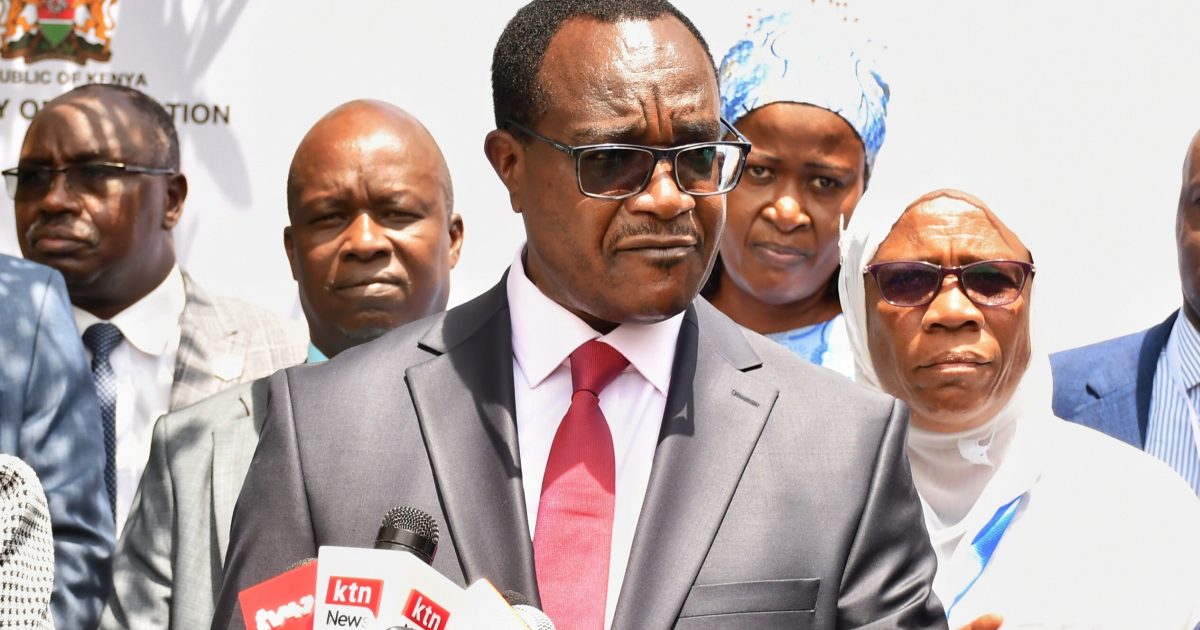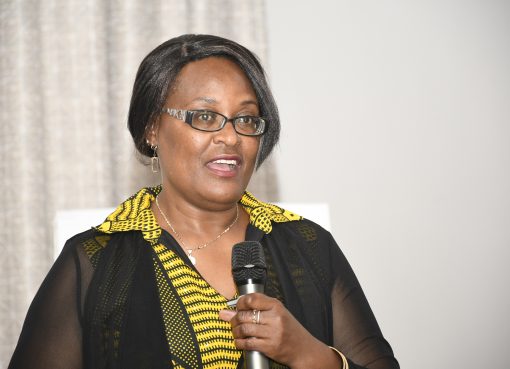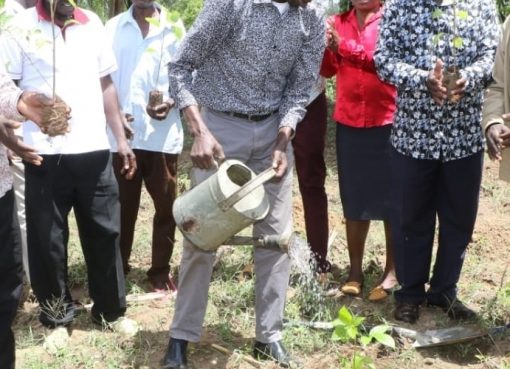Education Cabinet Secretary Julius Migosi Ogamba said the new skills set for the future world of work can be identified through research and analysis of trends in skills requirements, adding that the state was making reforms in all levels of education to reflect the needs of the market and enhance the global competitiveness of Kenyan learners.
At the same time, Ogamba indicated that the National Treasury has disbursed Sh 109.9 billion as capitation for basic learning ahead of the reopening of schools next year.
The amount is apportioned across the three levels of basic education, with secondary schools getting the lion’s share of Sh 65.2 billion for Free Day Secondary Education, Sh35.3 billion for Junior Secondary Education and Sh9.36 billion for Free Primary Education.
Speaking at Moi Secondary School in Nakuru Town West Sub-County, the Cabinet Secretary indicated that the release of capitation funds before the commencement of the new school term will facilitate seamless resumption of school activities in the new term.
While stressing that reforms are inevitable, the CS explained that the education sector the country needs is one that will grow learners holistically and that Kenya needs a modernised education that will make it compete favourably with other countries.
“This is why the government is investing heavily in infrastructure development in the education sector, such as classrooms, laboratories, dormitories, libraries, electricity, and internet connectivity. We want education that will impact and cause relevance for the professionals we produce in the growing world labour market. It is only then that we shall meet global standards,” he added.
He further announced that the Government had disbursed Sh18 billion for the construction of various education infrastructure across the country.
Ogamba explained that the government was sponsoring three bills to streamline the education sectors by promoting measures that will encourage innovation, skill development, promote research, and bolster quality learning.
The proposed legislation includes the Universities Bill 2024, which is intended to improve governance in institutions of higher learning; the Technical Vocational Education Training Bill 2024, purposed to strengthen TVETS; and the Science and Innovation Bill 2024, which is engineered to promote research and innovation.
“These Bills are part of our strategy to align Kenya’s education system with demands of the 21st century, emphasising skills development, equity, and global competitiveness,” he added.
In the draft Universities Bill, 2024, the government is pushing to tighten the accreditation procedures of courses and institutions in an apparent bid to reign in rogue Universities.
In the bill, the universities have been classified into six, ending the current arrangement where the institutions offer a cocktail of programmes.
In the new changes, the institutions have been classified into research universities, science and technology universities, comprehensive universities, and technical universities. Others are specialised and graduate universities.
“A described category of a university shall not be converted to or offer a programme offered by a university in a different category without accreditation,” the bill states.
Ogamba reassured teachers that the government would continue improving their welfare by addressing the challenges they are facing.
Ogamba reiterated the State’s commitment to addressing teachers’ concerns over salaries and allowances.
The Cabinet Secretary said structures had been put in place for meaningful engagement with the teachers’ union officials.
He disclosed that this year 1,313,913 candidates sat for the KPSEA examination while 965,501 wrote their KCSE examination. Last year, 1,282,574 and 903,260 candidates sat for KPSEA and KCSE examinations, respectively.
The Cabinet Secretary acknowledged the crucial role that teachers played in the development of the country, adding that since teachers were a fundamental condition to guarantee quality education, they and educators should be empowered, adequately recruited and remunerated, and more importantly, motivated.
He revealed that in a bid to carry out successful education reforms, the government was investing heavily in the capacity of teachers and educators,s and teaching as a profession was being made attractive to the top high school candidates.
Ogamba, who was flanked by PS Dr. Belio Kipsang, Nakuru Town West MP Samuel Arama, and County Commissioner Layford Kibaara, stated that the government had recognised that the success of the Education 2030 agenda requires sound policies and planning as well as sufficient and properly trained teachers.
The CS affirmed that the State was committed to quality education and to improving learning and the mechanism to measure progress.
He vowed to ensure that teachers and educators are empowered, adequately recruited, well trained, professionally qualified, motivated, and supported.
The right to education, noted the Cabinet Secretary, makes it necessary to recruit and retain qualified and motivated teachers who should work in a safe environment, have access to appropriate tools and resources, and enjoy adequate working conditions and remuneration.
“We are putting in place proper incentives, which include appropriate remuneration and a clear career progression path. The government is working round the clock to ensure teachers are empowered through the provision of decent working conditions,” Ogamba stated.
Ogamba indicated that to achieve the Education 2030 agenda, every school in the country needed to be staffed with qualified teachers.
The government, through the Teachers Service Commission, had hired 56,000 teachers, with a further 20,000 set to be employed in January next year, the CS added.
The Cabinet Secretary further announced that a comprehensive audit of the safety of boarding schools had been initiated to ensure children were safe in school.
He said 348 schools that did not meet the threshold will not be allowed to operate their boarding component from January 2025.
By Jane Ngugi





